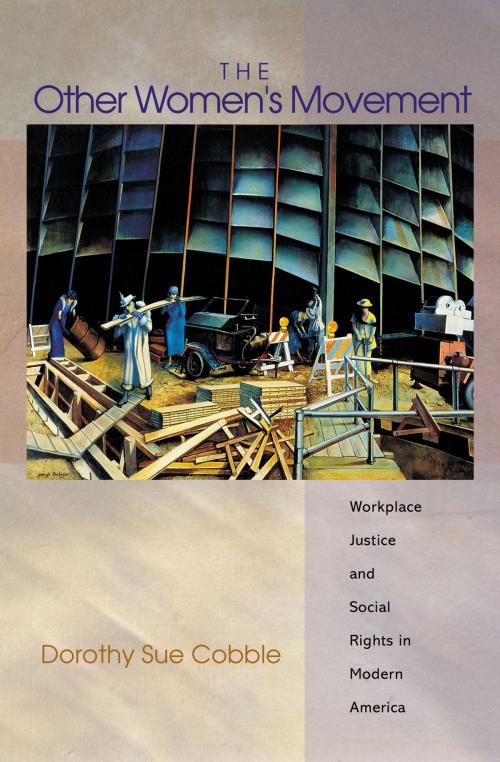The Other Women's Movement
Workplace Justice and Social Rights in Modern America
Nonfiction, History, Modern, 20th Century, Americas, United States| Author: | Dorothy Sue Cobble | ISBN: | 9781400840861 |
| Publisher: | Princeton University Press | Publication: | August 15, 2011 |
| Imprint: | Princeton University Press | Language: | English |
| Author: | Dorothy Sue Cobble |
| ISBN: | 9781400840861 |
| Publisher: | Princeton University Press |
| Publication: | August 15, 2011 |
| Imprint: | Princeton University Press |
| Language: | English |
American feminism has always been about more than the struggle for individual rights and equal treatment with men. There's also a vital and continuing tradition of women's reform that sought social as well as individual rights and argued for the dismantling of the masculine standard. In this much anticipated book, Dorothy Sue Cobble retrieves the forgotten feminism of the previous generations of working women, illuminating the ideas that inspired them and the reforms they secured from employers and the state. This socially and ethnically diverse movement for change emerged first from union halls and factory floors and spread to the "pink collar" domain of telephone operators, secretaries, and airline hostesses. From the 1930s to the 1980s, these women pursued answers to problems that are increasingly pressing today: how to balance work and family and how to address the growing economic inequalities that confront us. The Other Women's Movement traces their impact from the 1940s into the feminist movement of the present.
The labor reformers whose stories are told in The Other Women's Movement wanted equality and "special benefits," and they did not see the two as incompatible. They argued that gender differences must be accommodated and that "equality" could not always be achieved by applying an identical standard of treatment to men and women. The reform agenda they championed--an end to unfair sex discrimination, just compensation for their waged labor, and the right to care for their families and communities--launched a revolution in employment practices that carries on today.
Unique in its range and perspective, this is the first book to link the continuous tradition of social feminism to the leadership of labor women within that movement.
American feminism has always been about more than the struggle for individual rights and equal treatment with men. There's also a vital and continuing tradition of women's reform that sought social as well as individual rights and argued for the dismantling of the masculine standard. In this much anticipated book, Dorothy Sue Cobble retrieves the forgotten feminism of the previous generations of working women, illuminating the ideas that inspired them and the reforms they secured from employers and the state. This socially and ethnically diverse movement for change emerged first from union halls and factory floors and spread to the "pink collar" domain of telephone operators, secretaries, and airline hostesses. From the 1930s to the 1980s, these women pursued answers to problems that are increasingly pressing today: how to balance work and family and how to address the growing economic inequalities that confront us. The Other Women's Movement traces their impact from the 1940s into the feminist movement of the present.
The labor reformers whose stories are told in The Other Women's Movement wanted equality and "special benefits," and they did not see the two as incompatible. They argued that gender differences must be accommodated and that "equality" could not always be achieved by applying an identical standard of treatment to men and women. The reform agenda they championed--an end to unfair sex discrimination, just compensation for their waged labor, and the right to care for their families and communities--launched a revolution in employment practices that carries on today.
Unique in its range and perspective, this is the first book to link the continuous tradition of social feminism to the leadership of labor women within that movement.















